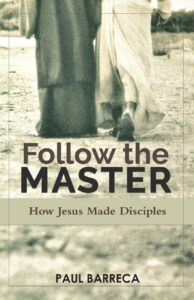A well dressed socialite woman was walking through a NYC park on a fine Spring day. A sketch artist had set up a sketch board and the woman was impressed with his displayed sketches. She paid the $15 and sat down. With her nose still stuck up in the air, the young man sketched her picture.
She was very excited. This would look good in her foyer. But she when she saw the drawing she was outraged. “Young man this is terrible – you didn’t do me justice!”
“Maam, you don’t need justice, what you need is mercy!”
All of us are in need of mercy! We read about the beauty and power of mercy in James 2:10-13. “For whoever keeps the whole law but fails in one point has become accountable for all of it. For he who said, “Do not commit adultery,” also said, “Do not murder.” If you do not commit adultery but do murder, you have become a transgressor of the law. So speak and so act as those who are to be judged under the law of liberty. For judgment is without mercy to one who has shown no mercy. Mercy triumphs over judgment.” (James 2:10–13)
First and foremost,
I. God Treats us with Mercy.
2:13 states, “Speak and act as those who will be judged under the law of liberty.”
James will return to the theme of mercy again in chapter 5. “Behold, we consider those blessed who remained steadfast. You have heard of the steadfastness of Job, and you have seen the purpose of the Lord, how the Lord is compassionate and merciful.” (James 5:11, ESV)
Today people mock the Bible accusing God of being a God of vengeance. They think that they prove their point by stating that the God of the Old Testament is a God of judgment. But God’s mercy is just as profound in the OT as it is in the NT. In fact, mercy is one of the most central attributes of God.
We see this in the Old Testament in passages like Daniel 9:9 “To the Lord our God belong mercy and forgiveness, for we have rebelled against him” (Daniel 9:9, ESV)
And New Testament passages confer the significance of God’s mercy. “But God, being rich in mercy, because of the great love with which he loved us,” (Ephesians 2:4, ESV)
God’s mercy did not BEGIN in the New Testament.
He showed his MERCY to Adam, Noah
He showed his MERCY to Abraham, Isaac, Jacob
He showed his MERCY to Israel when they were in bondage. “The Lord is merciful and gracious, slow to anger and abounding in steadfast love. He will not always chide, nor will he keep his anger forever. He does not deal with us according to our sins, nor repay us according to our iniquities. For as high as the heavens are above the earth, so great is his steadfast love toward those who fear him; as far as the east is from the west, so far does he remove our transgressions from us. As a father shows compassion to his children, so the Lord shows compassion to those who fear him.” (Psalm 103:8–13, ESV)
The Jewish believers in James’ audience needed to be reminded that our relationship with God is governed by MERCY and not LAW.
James: Mercy vs. Law. There is a contrast in the way that we approach God. Many approach God on the basis of LAW. But instead, we are to approach God on the basis of \MERCY. James demonstrates this contrast by the way that he speaks about LAW.
“LAW” mentioned 11x in James. James uses the phrases “Law of Liberty” and “Royal Law” to speak of an alternate way of approaching God. The Jews of the first century were indoctrinated to think of the Mosaic code and the rules and regulations that it contained. James wants them to lift their thoughts to a higher form of loving God – that is loving his mercy. Notice the usages of “law” in the book of James. He goes back and forth in writing about two different approaches to our consideration of following the law and pleasing God.
1:25 (2x) “Law of liberty” (Another name for pleasing God through Love)
2:8 “Royal Law”
2:9 “convicted by the Law” (Contrast with Royal Law)
2:10 “keeps the whole Law” (contrast)
2:11 “transgressors of the Law”
2:12 “Law of Liberty”
4:11 (4x) “you are not a doer of the law but a judge”
How did 1st Century Jews view the Law?
1. Pleasing God by AVOIDING the BIG SINS. Some of God’s laws are more serious than others. God will accept me as long as I don’t sin too badly. This really isn’t a focus on pleasing God, it is just a way doing what you want to do without making Him too angry.
2. Pleasing God by DOING MORE GOOD than BAD. “(the rabbi’s held that) a man could run sort of a credit and debit account with God, of good deeds and bad, and so need not to do more than keep the balance on the right side” (James Admanson, New Int Commentary on the NT, 117).
3. Pleasing God by GOING to CHURCH. 1st Century Jews believed followed a priority that keeping the Sabbath outweighed other violations. From a 1st century Jewish source “The Sabbath weighs against all the precepts: if they keep it, they are reckoned as having done all” (Adamson, 117)
4. Pleasing God by PERFORMING RELIGIOUS RITUAL. Hillel taught that to “wear phylacteries was to fulfill the whole law” (Adamson, 117).
These ideas about pleasing God are not just first century ideas. Most people today follow the same set of rules.
1. AVOIDING the BIG SINS. “Little sins” and “Big sins.” (Venial sins and Mortal sins are the technical terms on Roman theology). This thinking carries the idea “As long as I don’t commit any big sins, God will not punish me.”
We confuse the CONSEQUENCES of sin with the CONTAMINATION of sin.
Murder has far greater consequences than hatred, but both make the sinner guilty before God.
Adultery has far greater consequences than lust, but both make the sinner guilty before God
2. DOING MORE GOOD than BAD. As long as my good outweighs my bad, I will get into heaven.
3. GOING to CHURCH.
4. PERFORMING RELIGIOUS RITUAL. Some follow the idea that “God will be impressed if I ….wear this cross on my neck, …..put this fish on my car, or ….tattoo this Latin word on my arm.”
The PROBLEM with PLEASING GOD by DOING GOOD. James 2:10
You can never do enough good.
You violate the WHOLE LAW by violating any portion.
How many sins do you need to commit to be a sinner? (One)
How much guilt do you need to be guilty? (Any violation makes us guilty)
Our problem is that we are CONDITIONED to attempt reformation.
CS Lewis was once asked what distinguished Christianity from every other religion.
He didn’t say the resurrection, or the Bible, or good works.
He said GRACE
II. God Expects that we treat One Another with Mercy
Every Biblical truth has an application. But some truths are particularly important to certain people in certain times.
CONSERVATIVE EVANGELICAL CHRISTIANS who are committed to Scripture, Committed to holiness and purity. We’ve fought the battle. We have a High Commitment – High Standards. For us, the tendency is to be harsh and unmerciful. This message from James is critical for us!
Two Examples of the Life Characterized by Mercy
1. Love Your Neighbor. “If you really fulfill the royal law according to the Scripture, “You shall love your neighbor as yourself,” you are doing well.” (James 2:8, ESV)
2. Reject Partiality. “But if you show partiality, you are committing sin and are convicted by the law as transgressors.” (James 2:9, ESV)
Two Examples of LAW KEEPING are mentioned
1. 2:11 “Do not commit adultery”
2. 2:11 “Do not murder”
These two laws were the ones that the Jews prided themselves in keeping.
These are TWO of the FOUR laws that the Rich Young Ruler boasts about keeping. “You know the commandments: ‘Do not commit adultery, Do not murder, Do not steal, Do not bear false witness, Honor your father and mother.’ ” And he said, “All these I have kept from my youth.”” (Luke 18:20–21, ESV)
Reasons to Choose Mercy James 2:12-13 “so speak and act as those who are to be judged under the law of liberty…..
1. God has been merciful to us. “Listen, my beloved brothers, has not God chosen those who are poor in the world to be rich in faith and heirs of the kingdom, which he has promised to those who love him?” (James 2:5, ESV) “So the servant fell on his knees, imploring him, ‘Have patience with me, and I will pay you everything.’ And out of pity for him, the master of that servant released him and forgave him the debt.” (Matthew 18:26–27, ESV)
2. In condemning others, we condemn ourselves. “For judgment is without mercy to one who has shown no mercy. (James 2:13, ESV). “Then his master summoned him and said to him, ‘You wicked servant! I forgave you all that debt because you pleaded with me. And should not you have had mercy on your fellow servant, as I had mercy on you?’ And in anger his master delivered him to the jailers, until he should pay all his debt. So also my heavenly Father will do to every one of you, if you do not forgive your brother from your heart.”” (Matthew 18:32–35, ESV)
3. We understand our NEED for MERCY. We are all mercy dependent.
4. Mercy motivates us to holiness. Grace is the Sin Breaker. A young employee misappropriated several thousand dollars of his business firm’s money. When he was caught he was asked to report to the company CEO. As the young man walked up the stairs to the administrative office, he knew what almost certainly awaited him: dismissal, humiliation, and legal action. When he met with the CEO, he was asked about the whole affair. He answered truthfully and admitted his guilt. The CEO became silent for a few minutes, then asked, “If I keep you in your present capacity, can I trust you in the future?” The young man brightened up and said, “Yes sir! I give my word. I have learned my lesson.” The CEO thought some more, then said, “I won’t press charges. You can continue in your present position.” As the young man made his way for the door, the CEO said, “There’s something you should know. You are the second man in this firm who gave in to temptation and was shown leniency. I was the first. What you have done, I did. The mercy you are receiving, I received. It is only the grace of God that can keep us both.”
5. Mercy is greater! Mercy triumphs over judgment.” (James 2:13, ESV)
“Triumphs” = boasting.
“to boast in triumphant comparison with others.” (Kittle)
This word is used of a gladiator over his defeated foe (BGAD)
When faced with a CHOICE between Judgment and Mercy
Someone has hurt you
A son or daughter
A church member
You have the power to show judgment
YOUR OWN SINS. Mercy Triumphs
Love Mercy “He has told you, O man, what is good; and what does the Lord require of you but to do justice, and to love mercy, and to walk humbly with your God?” (Micah 6:8, ESV)



